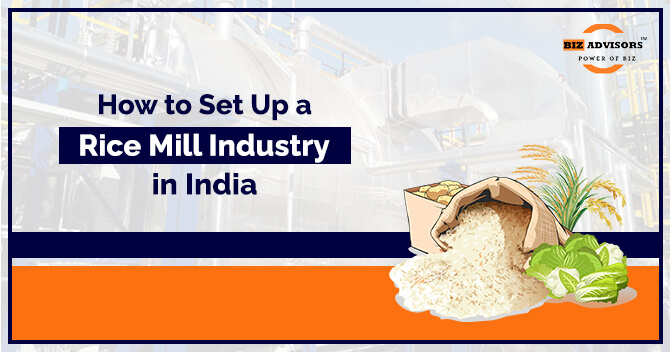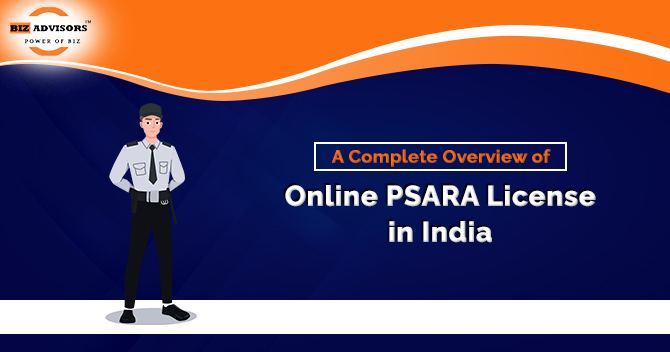Given that it is consumed by half of the world’s population, rice is by far one of the most significant commercial food crops. About 535 million tonnes of rice are produced annually. The two countries that produce the most rice globally, China and India, account for 50% of global production. Southeast Asian nations produce between 9 and 23 million metric tonnes of rice annually, with a relatively low export rate. Rice is grown on more than 300 million acres of land across Asia. Due to its massive output, the word “rice” is used interchangeably with “food” in Asian cultures. An applicant must adhere to certain legal requirements in order to establish a Rice Mill Industry in India. In this article, we will discuss how to set up Rice Mill Industry in India.
Different types of Licenses required for the Rice Mill Industry in India
The following are the types of licenses required for the Rice Mill Industry in India:
1. GST Registration
Obtain a GST number since doing business across state lines without hassles requires one. Visit the official website to fill out an online application for GST Registration. The applicant will be asked to upload several basic documents throughout the form submission process, including
- Business PAN card.
- The certificate of incorporation from the Ministry of Corporate Affairs
- Articles of Association/Memorandum (in case of a private and public limited company)
- Proof of appointment for the signatory.
- PAN card of the signatory.
- Aadhaar card of the signatory.
- PAN cards for every director (in the case of a private and public limited company)
- Proof of addresses for all directors (in case of a private and public limited company)
2. FSSAI License
Anyone who works in the food industry, including rice producers, must have an FSSAI license. A required fee and an online application for an FSSAI license can be submitted on the relevant government portal. The candidate will be required to upload the following fundamental documents when submitting their application.
1. Proof of an authorized person’s address
2. photo in passport size
3. Company name and address
4. Details on the type of business
5. Form FSSAI Declaration
The application will be sent to the appropriate authority for thorough review shortly after being submitted. Keep in mind that if the provided FSSAI criteria are not followed, the registration request may be canceled.
3. PFA and ESIC Registration
According to the current Labor law, any registered establishment with a workforce of more than the specified threshold limit is required to get PFA and ESIC registration for each employee. If an employee’s Basic + Dearness Allowance is less than INR 15,000 per month, the business owner must register a PFA for them.
If the following criteria are satisfied, employees must register with ESIC:
· If there are currently more than 10 employees working at the establishment
· If the employee’s monthly income is Rs. 21,000 or less
4. Company Registration
Undoubtedly, registering a company is the first step in creating a legal entity in India. The business owners might choose one of the following business models depending on the size of the operation and the capital commitment.
1. Limited Liability Partnership (LLP),
2. Private Limited Company,
3. Public Limited Company,
4. One Person Company (OPC)
5. Udyog Aadhaar MSME Registrations
Although Udyog Aadhaar MSME Registration is not yet required, it offers a variety of beneficial advantages to business owners, including those in the rice mill industry. The criteria for the investment in plants and machinery determined the current MSME categorization. The Indian government updated the MSME classification under the Aatmanirbhar Bharat Abhiyan by incorporating composite criteria for both annual turnover and investment.
6. No Objection Certificate From Pollution Department
According to Section 25 of the Water (Prevention and Control of Pollution) Act, 1974[1], every business owner who operates a facility that releases pollutants into the environment or into water resources must obtain the appropriate pollution control board’s permission in the two steps that follow;
Before starting any industry or process, the State Pollution Board must grant consent to establish (CTE), which is referred to as a No Objection Certificate.
Consent to Operate (CTO): Soon after an industry or processing plant is established, one can obtain a Consent to Operate No Objection Certificate. These No Objection Certificates are periodically renewed.
Remember that every state pollution board has a corresponding online portal where applicants can submit online CTE and CTO applications. You will be required to include the following supporting documentation when submitting your application.
· Index and site proposal
· Map of the World
· Detailed examples of the various processes and point sources of sewage emissions
· A document detailing the KVA capacity of diesel generators
· Information on tools for the Ambient Air Quality Report on Water and Air Pollution
· Certificate of Non-Objection from the State’s Directorate of Industries
· No Objection Certificate from the Government of Maharashtra’s Directorate of Industries/SSI Certificate
· DGTD (Director-General of Trade and Development) certificate (if applicable)
· Information on chemical reactions that have mass equilibrium
· Demand draughts (DD) in the number of fees made out to the appropriate Pollution Control Board are accepted.
· Chartered Accountant’s signature on a certificate or undertaking that highlights estimates for capital investments and water budgets.
Conclusion
The aforementioned information makes it clear that starting a Rice Mill Industry in India is not an easy task. Before beginning the processing or production in the plant, one must satisfy a number of legal conditions. Having said that, if you assure compliance with the aforementioned truth, it can assist you in starting your firm. Seek professional help to set up a Rice Mill Industry in India. You can also reach at Bizadvisors.io for more information.
Read our article:How to Start an Online Grocery Store in India?
 9559179325
9559179325 9559179325
9559179325





